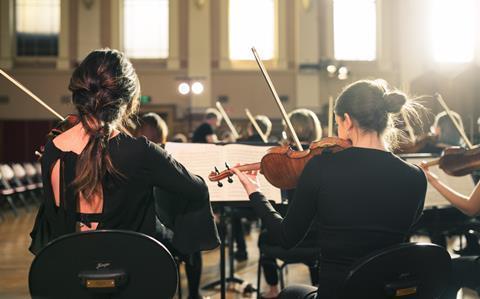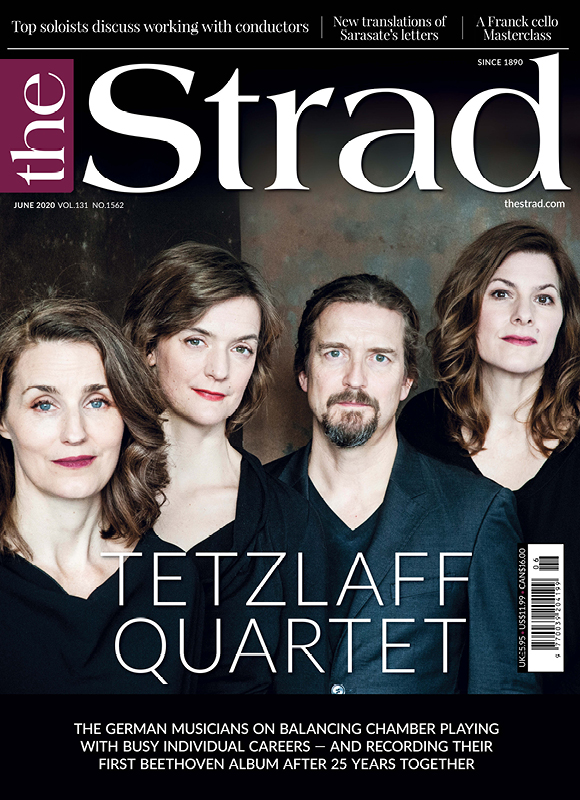For classical music students, bridging the divide between training and employment is often a case of being entrepreneurial, writes Jacqueline Vanasse

I am studying for a masters in classical music business, and when people ask me what this involves, I like to shock them by saying I am learning how to make money in the classical music field. In fact, my course has less to do with making money and more about creating value for classical music by making it relevant – but this question of ‘relevance’ seemed none of my concern when I was studying violin performance. Instead, I continued with my studies and, like so many others, only realised my mistake once I entered the space between training and employment.
Classical music is relevant by itself, you will argue. The thing is – and I know you do not want to hear it but – performers do not get to choose what is relevant in music, and nor do managers, administrators or promoters. Instead, the audience – whoever chooses to listen to you or not – does. You will create value for your music by keeping your originality alive in a way that people can actually understand and relate to. That is a basic rule of entrepreneurship, and, as far as Darwinian ‘survival of the fittest’ goes, relevance is also a basic rule of life: you will live as long as you suit your environment.
But do you know your environment? Do you know what your professional life will be like after graduating? I think a part of what prevents music students from being practical about their future is the strong identification all musicians have with their art. Being a musician is not a profession – no amount of money adds to the reward of playing music itself. You play, therefore you are. This might also explain our fear of selling ourselves and of accessing the job market. But we need to be more pragmatic about what we do. The idea of the selfless, unfettered artist is an illusion that classical music has created for itself. It is a necessary and beautiful story we tell and in which I believe with all my heart, but it is not helpful in practical terms.
While you’re at school, talent and relentless practice are everything; out in the professional world, they are the tip of the iceberg. Having the courage to adopt a more entrepreneurial approach will enable you to launch yourself as a professional ahead of time. You will know exactly what you have to work on in order to get where you want to be. Being entrepreneurial means putting acquired skills and knowledge in context, reassessing them and acquiring new expertise along the way.
Find the connection that will make you successful. Not enough concert opportunities? Set up your own. When studying at the Royal Academy of Music in London, Simon Rattle would invite his friends to come and play, thus forming an orchestra he wanted to conduct. In New York, Young Concert Artists started as recitals organised in a restaurant by Susan Wadsworth who wanted to showcase young talented musicians she kept in touch with from her years at (what was then) Mannes College of Music. Being entrepreneurial is about welcoming the development of your art form, the increased variety of what music can be and its place in society. It is making you a better student in the short term and a more complete musician in the long term.
For centuries, musicians advanced themselves through entrepreneurial activities. It is those who seized the opportunity and embraced their environment, shaping it to their tastes and values, instead of protecting their art against it, that we remember and admire today. If we stay true to our artistic vision, no matter how the times are changing around us and how much we need to adapt in order to bring it value, there will be no money or undertaking in the world that will compromise our music.
-
This article was published in the June 2020 Tetzlaff Quartet issue
The Tetzlaff Quartet members discuss balancing chamber playing with busy individual careers - and recording their first Beethoven album after 25 years together. Explore all the articles in this issue.
More from this issue…
- The Tetzlaff Quartet on recording Beethoven
- A genuine Amati or a clever fake?
- Top soloists discuss working with conductors
- New translations of Sarasate’s letters
- Bows from the courts of Napoleons I and III
Read more playing content here
-












































No comments yet